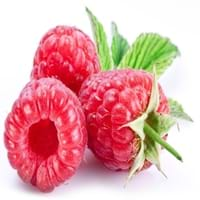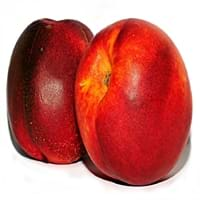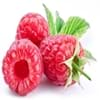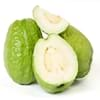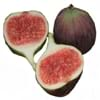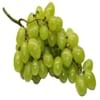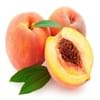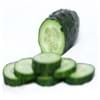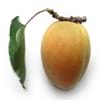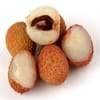Benefits
Health Benefits
Cancer prevention, Heart care, Prevents macular degeneration, Reduces blood circulation problems
Cancer prevention, Heart care
General Benefits
Anti-inflammatory properties, Controls blood sugar levels, Digestive aid, Eye care, Helps in weight loss
Anti oxidant properties, Boosts immune system, Digestive aid, Eye care, Helps in weight loss, Maintains healthy cholesterol level
Skin Benefits
Anti-aging benefits, Brightens and lightens complexion
Anti-aging benefits, Reduces wrinkles, Skin rejuvenation
Hair Benefits
Acts as moisturizer, Regulates hair growth, Shiny hair
Protects hair
Allergy
Allergy Symptoms
Breathing difficulty, Eczema, Hives, Itching, Nasal congestion, Runny nose, Sneezing, Watery eyes, Wheezing
Anaphylaxis, Asthma, Breathing difficulty, Diarrhea, Hives, Itching, Itchy eyes, Skin rash, Sneezing, Swelling of mouth, tongue or lips, Tingling sensation in mouth, Vomiting, Watery eyes, Wheezing
Side Effects
Allergic reaction
Allergic reaction, Headache, Nausea
Recommeded for
Pregnant Women
Yes
Yes
Lactating Women
Yes
Yes
Best Time to Eat
Best if taken as a breakfast (or empty stomach), As a snack in the late afternoon, Don't eat after meal, Morning time (before lunch)
Best if taken as a breakfast (or empty stomach), As a snack in the late afternoon, Eat the fresh ones, avoid mixing with any other foods, don't eat after meal., Morning time (before lunch)
Nutrition
Serving Size
100 g
100 g
Carbs
11.94 g
99+
10.60 g
99+
Fiber
6.50 g
6
1.70 g
29
Sugar
4.42 g
99+
7.90 g
37
Protein
1.20 g
19
1.10 g
21
Protein to Carb Ratio
0.10
15
0.10
15
Vitamins
Vitamin A (Retinol)
2.00 mcg
33
17.00 mcg
22
Vitamin B1 (Thiamin)
0.03 mg
30
0.03 mg
28
Vitamin B2 (Riboflavin)
0.04 mg
24
0.03 mg
32
Vitamin B3 (Niacin)
0.60 mg
26
1.13 mg
6
Vitamin B5 (Pantothenic Acid)
0.33 mg
11
0.19 mg
35
Vitamin B6 (Pyridoxin)
0.06 mg
32
0.03 mg
99+
Vitamin B9 (Folic acid)
21.00 mcg
13
5.00 mcg
30
Vitamin C (Ascorbic Acid)
26.20 mg
35
5.40 mg
99+
Vitamin E (Tocopherole)
0.87 mg
12
0.77 mg
14
Vitamin K (Phyllochinone)
7.80 mcg
10
2.20 mcg
26
Lycopene
0.00 mcg
9
0.00 mcg
9
Lutein+Zeaxanthin
136.00 mcg
7
130.00 mcg
8
Choline
12.30 mg
3
6.20 mg
18
Fat
0.65 g
12
0.32 g
26
Minerals
Potassium
151.00 mg
99+
201.00 mg
35
Iron
0.69 mg
18
0.28 mg
37
Sodium
1.00 mg
20
0.00 mg
21
Calcium
25.00 mg
18
6.00 mg
39
Magnesium
22.00 mg
11
9.00 mg
26
Zinc
0.42 mg
6
0.17 mg
16
Phosphorus
29.00 mg
18
26.00 mg
20
Manganese
0.67 mg
5
0.05 mg
99+
Copper
0.09 mg
24
0.09 mg
25
Selenium
0.20 mcg
15
0.00 mcg
17
Fatty Acids
Omega 3s
126.00 mg
5
2.00 mg
36
Omega 6s
249.00 mg
7
111.00 mg
17
Sterol
Water Content
85.75 g
35
87.60 g
24
Ash
0.46 g
29
0.50 g
26
Calories
Serving Size
100 g
100 g
Calories in Fresh Fruit with Peel
53.00 kcal
21
44.00 kcal
29
Calories in Fresh Fruit without Peel
Not Available
Not Available
Calories in Frozen Form
52.00 kcal
13
Not Available
Calories in Dried Form
363.00 kcal
9
259.00 kcal
26
Calories in Canned Form
91.00 kcal
8
Not Available
Calories in Foods
Calories in Juice
68.00 kcal
18
70.00 kcal
17
Calories in Jam
150.00 kcal
33
175.00 kcal
30
Calories in Pie
169.00 kcal
99+
333.00 kcal
12
Characteristics
Type
Berry
Tree fruit
Season
Summer
Autumn, Summer
Varieties
Amity, August Red, Boyne, Canby, Caroline, Comet, Dinkum, Dorman Red, Latham, Meeker, Black Hawk, Hayda, Lauren, Meeker and Latham
Arctic Jay, Artic Rose, Artic Star, Armking, Desert Dawn, Fairlane, Fantasia, Silver Lode, Snow Queen, Stanwick and Stark Sunglo
Seedless Variety
No
No
Color
Black, Purple, Red, Yellow
Orange, Pink, Red, Yellow
Inside Color
Pink
Yellow
Shape
Conical
Round
Texture
Juicy
Succulent
Taste
Sweet
Sweet
Origin
Europe, North Asia
China
Grows on
Trees
Trees
Cultivation
Soil Type
Sandy loam
Sandy loam
Soil pH
5.8-6.5
6-6.8
Climatic Conditions
Cold
Sunny, Warm
Facts
Facts about
- There are more than 200 varieties of raspberries.
- In USA, 90% of the raspberries are grown in Washington, California and Oregon.
- They do not ripe after they are picked.
- A raspberry contain 100 to 120 seeds.
- The name ‘nectarine’ is with reference to the sweet food the gods eat, ‘nectar’.
- Nectarines are sometimes called ‘shaved peaches’ because their skin is smooth with no fuzz.
In Alcoholic Beverages
Wine
Yes
Yes
Beer
Yes
Yes
Spirits
Yes
Not Available
Cocktails
Yes
Yes
Production
Top Producer
Russia
China
Other Countries
Azerbaijan, Canada, Mexico, Poland, Serbia, Spain, Ukraine, United Kingdom, United States of America
Argentina, Chile, Egypt, Greece, Iran, Italy, Spain, Turkey, United States of America
Top Importer
United States of America
Germany
Top Exporter
Poland
Spain
Scientific Name
Botanical Name
Rubus Idaeus
Prunus persica
Synonym
Not Available
Not Available
Classification
Domain
Eukarya
Eukarya
Kingdom
Plantae
Plantae
Subkingdom
Tracheobionta
Tracheobionta
Division
Magnoliophyta
Magnoliophyta
Class
Magnoliopsida
Magnoliopsida
Subclass
Rosidae
Rosidae
Order
Rosales
Rosales
Family
Rosaceae
Rosaceae
Genus
Rubus
Prunus
Species
R. idaeus
P. persica
Generic Group
Rose
Rose
|
||
|
||
|
